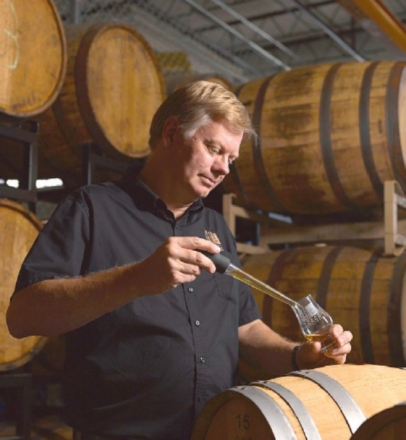Drink Local in Milwaukee
A hundred years ago, buying locally-made goods was a necessity. Now, to “Buy Local” is a choice—and a statement. Manufacturers give us more options than ever for what to eat and drink, but only recently has there been a resurgence of distilleries in the U.S. In the last decade alone, the number has grown from a couple of dozen to nearly a thousand.
Attempting to open a beverage distillery in Wisconsin during the last century was largely a fruitless endeavor. In fact, the oldest distillery in the state has been open just over a decade. We don’t hear much these days about Wisconsin’s history of liquor production, but it was once booming. The industry and nearly all of its remnants were wiped out by the so-called “Noble Experiment,” or Prohibition.
But why not open distilleries in Wisconsin with our abundance of quality agricultural ingredients and easy access to fresh water? They did. Beginning in the early 1840s, settler Richard Owens led the way, operating a distillery from his brewery on the shores of Lake Michigan. From then until Prohibition, Milwaukee always had a handful.
One of the most notable, Meadow Springs Distillery, opened in the late 1880s in the Menomonee Valley, near 28th and St. Paul. Later it became known as National Distilling, and after it was forced out of the alcohol business, the company decided to produce and sell an ingredient used in their process—yeast. This became a household name, the brand Red Star.
The alcohol industry didn’t always have the best reputation—in fact, it brought some of its problems onto itself. There was the Whiskey Ring, a group of Midwestern distillers who conspired with revenue agents to withhold tax payments and bribe government officials in order to help fund President Grant’s re-election campaign. Grant was not charged, but his personal secretary was indicted (until Grant himself testified to the man’s innocence). This debacle resulted in several Milwaukee distillers going to prison. Then there were the “tied houses”—saloons that sold one supplier’s product exclusively, an anti-competition practice thought responsible for excessive consumption, due to the unscrupulous marketing tactics competing houses unleashed on the local market.
The repeal of Prohibition in 1933 brought with it another slew of regulations on the alcohol industry. Some resulted in controls designed to help states ensure public safety as they saw fit. Many of these regulations are no longer relevant in today’s marketplace but are propped up by a handful of companies that benefit from them not changing.
Today, the sudden success of local distilleries has to do with several factors, including a resurgence in cocktail culture and the public’s growing appreciation of local and handcrafted goods. This interest has resulted in around 20 distilleries opening in Wisconsin. Local distillers use local ingredients and hire local people to produce and market our products. With the exception of a steep federal excise tax, the vast majority of dollars spent on our products stays in the local community.
Over the 11 years I’ve owned Great Lakes Distillery, I have seen failed attempts to increase excise taxes, and just this year, an attempt to strengthen Wisconsin’s already-Draconian franchise laws (which all but take away a distiller’s right to decide which wholesaler can sell their product). We have taken part in successfully pushing changes, including rewriting regulations to allow distilleries to sample and sell directly from the distillery, and most recently, to sample our products in retail liquor stores.
Despite these small political victories, there is a lot of work to be done. Shipping spirits to people who cannot find them locally is still illegal—although wine in many cases is legal to send. Excise taxes are considerably higher on spirits than beer or wine when all contain identical amounts of alcohol.
In fact, beer, wine and distilled spirits are all treated very differently by regulators. This is age-old ignorance, of the science behind alcohol production, and a persistent historical implication that beer and wine are somehow less harmful than spirits. Alcohol is alcohol, whether it is in beer, wine or spirits. Unfortunately, many don’t understand this—especially lawmakers beholden to industry lobbyists.
Despite all the antiquated regulatory hurdles, several other distillers I know and I, who have spent years experimenting and learning the craft of distilling, have begun to make a name for ourselves in this historic industry that primarily serves a local audience. It gives me great pleasure to say that with Great Lakes Distillery, Central Standard Distillery, Great Northern Distilling, Twisted Path Distilling, Yahara Bay Distillers, among others, Milwaukee consumers can enjoy a locally-crafted spirits option.





